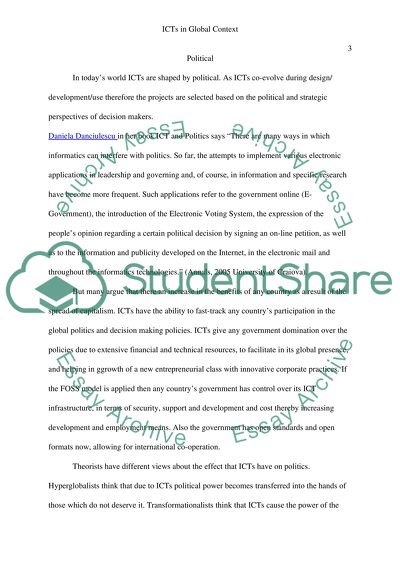Cite this document
(n.d.)
Retrieved from https://studentshare.org/information-technology/1427750-icts-in-global-context
Retrieved from https://studentshare.org/information-technology/1427750-icts-in-global-context
()
https://studentshare.org/information-technology/1427750-icts-in-global-context.
https://studentshare.org/information-technology/1427750-icts-in-global-context.
n.d. https://studentshare.org/information-technology/1427750-icts-in-global-context.


